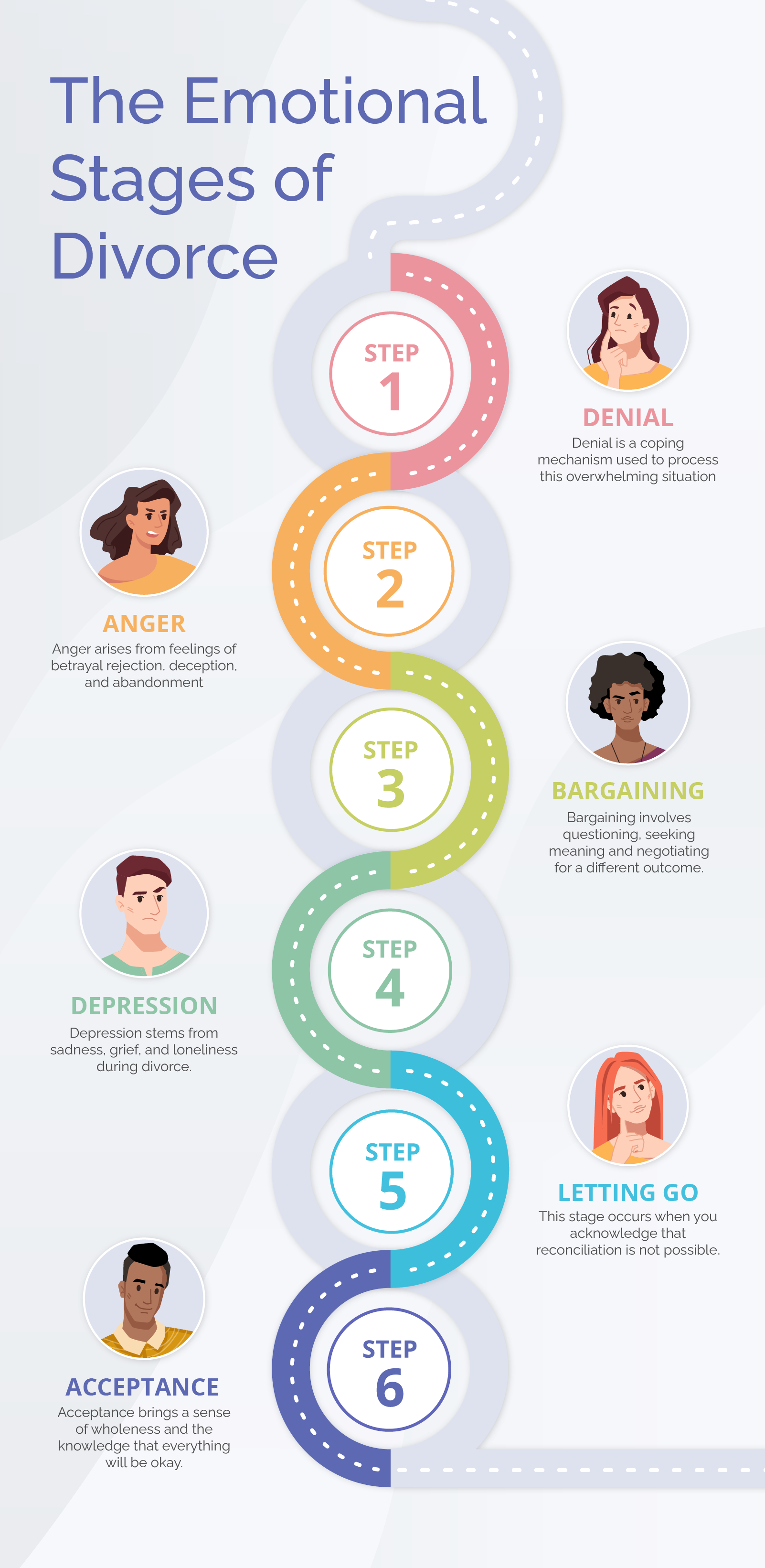Stage 1: Shock & Denial
Facing the prospect of divorce for the first time can leave you feeling utterly bewildered and overwhelmed, making it challenging to process the news effectively. Denial may also take hold, as your mind struggles to accept the reality of the situation, seeking refuge in the belief that divorce was never truly discussed or that your spouse will eventually backtrack and apologize for bringing it up. Accepting the end of a marriage on a deep psychological level is one of the most difficult aspects of divorce. While you may go through the motions of acknowledging the situation, emotionally, it can be challenging to truly comprehend that the relationship has come to an end.
Surprisingly, shutting down emotionally through denial can serve as a natural defense mechanism employed by the body. This protective mechanism helps you navigate the initial shock and loss by gradually easing you into the grieving process, sparing you from confronting the full impact all at once.
Denial exhibits several specific symptoms:
1. Shock: The initial state of profound disbelief and emotional turmoil experienced when confronted with the news of the end of a marriage, leading individuals to resist accepting the reality of the situation.
2. Numbness: A protective emotional state in which individuals detach themselves from the overwhelming reality of the divorce, creating a buffer against processing the full impact of the loss.
3. Confusion: Feelings of disorientation and uncertainty, as individuals struggle to comprehend and make sense of the impending divorce, leading to a reluctance to accept the truth.
4. Avoidance: Many times individuals consciously or unconsciously steer clear of confronting the reality of the divorce, seeking to escape the emotional distress associated with accepting the end of the marriage.
5. Shutting Down: A common emotional response where individuals retreat inwardly, suppressing their feelings and reactions to the divorce as a way to protect themselves from the overwhelming emotional turmoil.
While denial may not appear to be a healthy coping strategy, it is a common response that can provide a temporary buffer as you begin to process the profound changes in your life.






